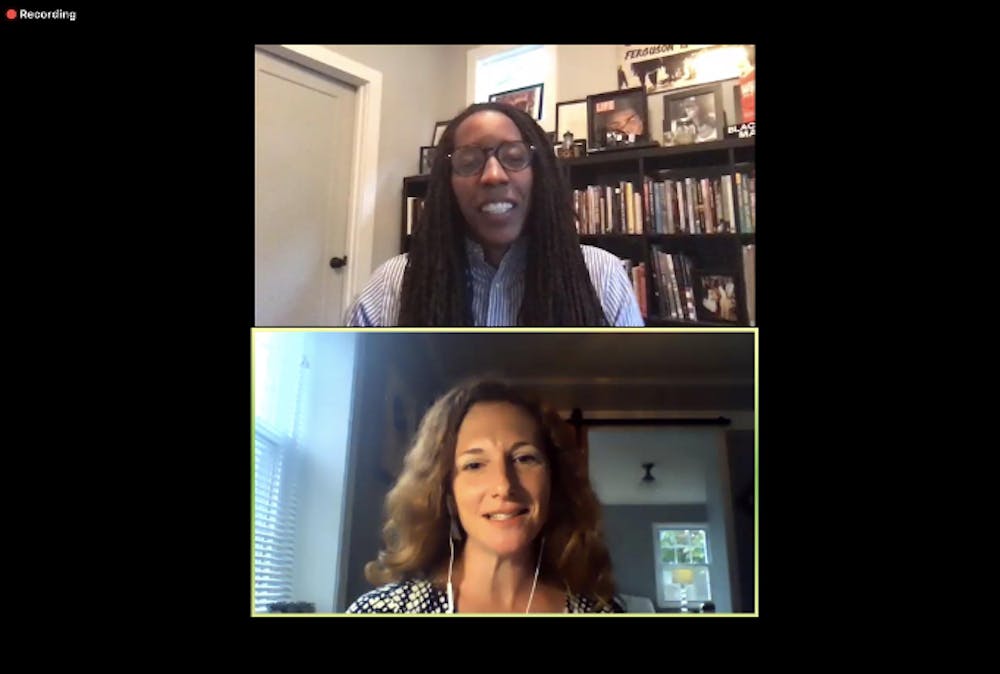Award-winning activist Bettina Love spoke at a joint virtual School of International Service and Antiracist Research and Policy Center event on Sept. 24, in a conversation that focused on education, race and Black joy.
An expert on abolition in education, Love spoke about the Black experience in academia in present-day America. Amanda Taylor, AU’s assistant vice president of Diversity, Equity and Inclusion, moderated the conversation.
“We’re not just trying to close schools that are harmful and oppressive to Black and brown children,” Love said. “We’re trying to eliminate the policies that will even make those types of schools possible.”
Love holds a Ph.D. from Georgia State University in educational policy studies and is an activist, author and education professor at the University of Georgia.
A key focal point for Love was the Black experience in education and society. Love spoke about the treatment of Black people in schools, specifically the violence and unfairness that they experience as children.
In 2019, Love published the book “We Want to Do More Than Survive: Abolitionist Teaching and the Pursuit of Educational Freedom,” establishing the principle of abolitionist teaching, which calls for a total reform of education. The principle employs methodologies of boycotting and protesting in schools against teachers whose classrooms are unsafe for minorities. With reform as the backbone, Love discussed the racism that students face in education.
Love referenced a teenage girl getting sent to a juvenile detention center for not completing her online schoolwork, and how that incident is indicative of the racist elements that influence the treatment of Black students around the nation.
“You say, ‘how is this happening? How do you wrap your mind around what you’re seeing?,’” Love said. “You have to have a framework to understand how racism … is seductive, how it mutates, how it breeds, how it transforms, in every setting.”
As part of the solution to the mistreatment of Black students in America, Love calls on teachers and educators, who are critical in abolitionist education, to act. It is an effort that requires everyone’s participation in order to change the academic environment in which students of color grow up, she said.
“We have to be loving Blackness as a political act of resistance,” Love said. “I work with teachers, and I’m trying to get them to understand that if you say you love Black children, then you have to see that as a political act of resistance. You have to have a radical imagination.”
Love also discussed prison reform. Abolition, Love said, is a framework within anti-racism: Prisons cannot simply be reformed, they must be abolished in order to dismantle the racist structures that institutions are built upon.
Love said the only way in which the educational system can become a place where students of color can be properly cared for is through complete abolition, which will allow students to be properly fostered.
“That is the work of abolition. We want to build conditions that create institutions that are just, that are loving, that are equitable, and that center Black lives,” Love said. “The work of abolition is to have an abominable spirit.”





